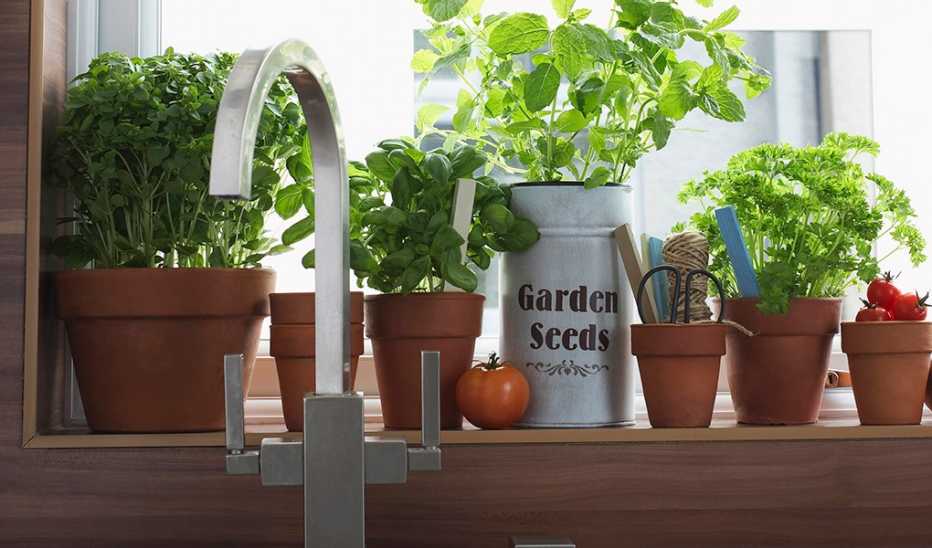Challenges


Quick Win
A low-maintenance indoor herb garden lets you reap some of the health benefits of houseplants and spruce up your cooking, too.
Try This Today
- Start small. Begin with two or three types of herbs, ideally those you love to cook with. You could grow them from seed, but it's much easier (and faster) to purchase potted herbs from a garden shop, replant in your own containers, and nurse them along. Use a separate 4-6 inch tall and wide container with a drainage hole for each herb.
- Ensure plentiful light. Most herbs thrive in full sun, so place your containers near your sunniest south-facing window. If your herbs are leggy or lack flavor, they likely need more light, in which case you may need to buy a few 40-watt LED grow lights.
- Discover your ideal watering schedule. How often you need to water depends on the herb as well as the temperature and dryness in your home. Check your plants every few days in the beginning before a schedule emerges: when the soil two inches from the top begins to feel dry, it’s time to water.
Why
Growing culinary herbs in pots is an easy way to add greenery to your environment. In a study looking at the effects of indoor plants on human health published in the International Journal of Environmental Research and Public Health in 2022, researchers did a systematic review of 42 studies and a meta-analysis of 16 studies and concluded that indoor plants can enhance cognition and help people relax. Culinary herbs also add flavor and nutrients to your meals. Culinary herbs contain a variety of compounds such as polyphenols that may benefit human health in a number of ways, according to an analysis published in PLoS ONE in 2018.











More From AARP
Make a Personal Bucket List With Purpose
Create a list that brings joy and fulfillment with meaningful goals and activities
How Dancing Can Strengthen Your Body and Mind
Research shows that dancing may help improve balance and quality of life
Learn Your Pet's Patterns
Tracking their behaviors and habits can benefit you both